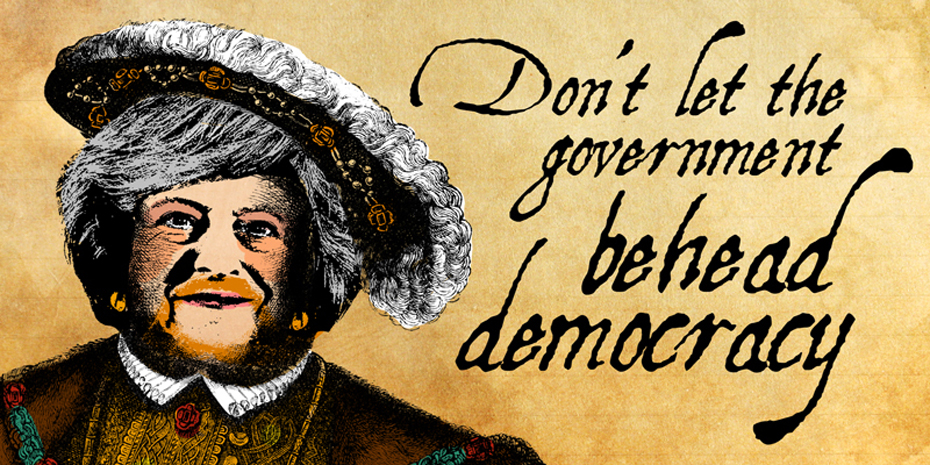For a detailed account of what the Bill means for democracy download our policy briefing.
What is the Great Repeal Bill?
The Great Repeal Bill aims to repeal the European Communities Act 1972, the piece of legislation which originally enabled the UK to join the European Union (then the European Communities). In general, however, the Bill is not about repealing law, but rather transferring EU law into British law. These laws can then be repealed, replaced, or maintained piecemeal after Brexit.
Without the Great Repeal Bill, the UK will have large holes in its legal system on the day it leaves the EU. So the Bill is needed to maintain legal and regulatory certainty after Brexit day.
What sort of laws will the Bill cover?
EU law covers a very wide range of subjects which affect everyone in Britain. A large amount of environmental protection, for instance, is formulated in the EU. Water standards, air quality, noise, toxic waste disposal, product standards, asbestos, protection of wildlife, protecting the countryside, and energy efficiency are all governed by EU law. Indeed the precautionary principle as a basis for regulation is based in EU law.
Many employment protections also originate in EU law, including the right to equal pay for men and women and working time rules, health and safety standards, protections for agency workers, and protections against discrimination.
These areas are just the tip of iceberg – thousands of laws and regulations will need to be transferred as part of the Great Repeal Bill, making it one of the most ambitious pieces of legislation ever introduced to parliament.
Why are we worried?
The Great Repeal Bill is not supposed to change the law, simply to transfer it. However, that task is not as simple or straightforward as it sounds. That’s because the legislation itself is hooked into European institutions and processes that we will no longer be part of when we leave the EU. These institutions and processes ‘oversee’ the legislation and often keep it up-to-date. Without such processes, legislation could easily become meaningless or out-of-date and ineffective.
These sorts of complexities mean that the Great Repeal Bill is likely to hand significant delegated power to the government because it is argued that parliament will not have the time to make such detailed decisions on so many laws and rules. We are concerned that, in their desire to pass the Great Repeal Bill, powers will be delegated to the government which will allow ministers to make significant decisions about the future of the legislation. In particular, this delegated power could allow government ministers to scrap or water down rights, protection and standards without any scrutiny or approval on the part of parliament.
What are Henry VIII clauses?
One of the ways parliament can delegate powers to government is through Henry VIII clauses. These powers were introduced by Henry in 1539, and were controversial even at the time, as they essentially allowed the monarch to legislate outside parliament. After Henry’s death they were scrapped, but similar powers have been resuscitated in more recent times to delegate authority to ministers to make primary legislation without normal parliamentary oversight. This gives very significant and unusual powers to government. In many countries, such powers would be deemed unconstitutional. It is particularly worrying when such powers involve such a wide range of legislation.
Henry VIII powers are not the only part of the Great Repeal Bill that concerns us. We’re worried about the level of parliamentary scrutiny in general, but we feel these particular clauses help people to understand just how significant is the issue we are campaigning around.
Are you just trying to hold up Brexit?
Once Article 50 is triggered, we are on the path towards Brexit. Ensuring parliament has proper oversight of law-making does not stop or hold up Brexit. It simply makes sure that the laws we have after Brexit are democratic and serve to protect society, our rights and the environment.
What are you calling for?
Our demands are:
- The government must reveal a clear and detailed Bill very soon with a clear timetable which ensures necessary time for consultation and debate
- Any delegated power to the government must be strictly defined with additional processes to scrutinise proposals
- Henry VIII powers must be avoided and delegated powers must be strictly limited with sunset clauses (meaning they expire after a certain time without a new vote to extend them)
- The government must guarantee, in law, clear provisions to prevent watering down human rights, equalities, and environmental laws and standards
I want to know more
Want to know more? Download our policy briefing.
30th March 2017

